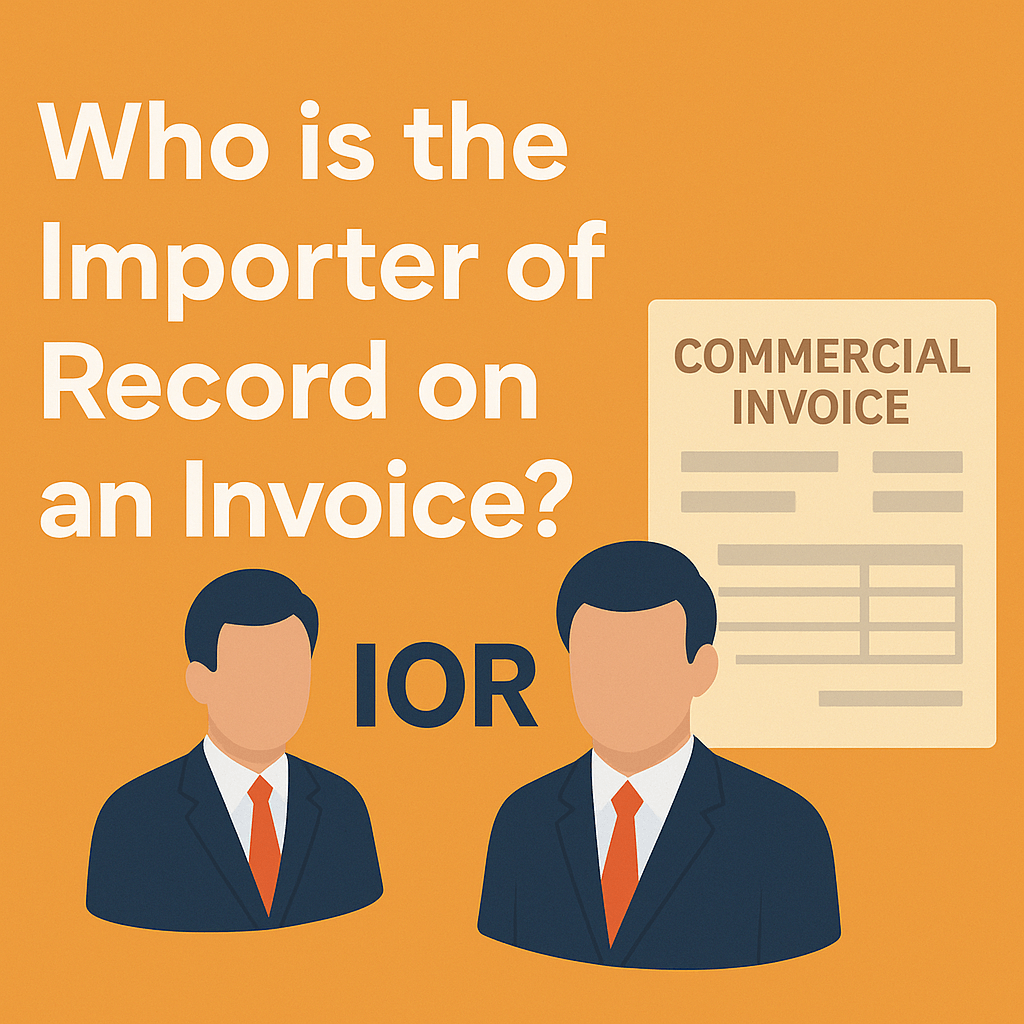Explore
- Home
- About Us
- Services
- Blog
- Contact Us
Quick links
- Guide to Import
- Guide to Export
- ICEGATE
- DGFT
- Get DSC

The Importer of Record (IOR) on an invoice is the person or legal entity responsible for ensuring that imported goods comply with local laws and regulations of the destination country. This includes handling customs clearance, paying import duties and taxes, and ensuring all necessary permits or licenses are obtained. The IOR’s name is typically listed on commercial invoices and other shipping documents submitted to customs authorities.
While the IOR is often the buyer or recipient of the goods, that’s not always the case. Depending on the shipping arrangement or Incoterms used (like DDP – Delivered Duty Paid), the IOR may be the seller, a customs broker, or a third-party logistics provider who assumes legal responsibility for the import.
The inclusion of the IOR’s details on the invoice is crucial for customs processing. It identifies who will be held accountable if there’s a compliance issue, such as undervaluation, restricted goods, or missing paperwork. The IOR’s name, address, and tax identification number are often required on the invoice to facilitate smooth clearance.
In summary, the IOR listed on the invoice is the entity legally responsible for the import—not necessarily the owner of the goods, but the party liable under customs law. Choosing the correct IOR is vital to avoid fines, delays, or legal issues during the import process.
EXCELLENTTrustindex verifies that the original source of the review is Google. Had a really good experience with JParks India. Rahul sir helped me a lot with my import work and were always active and responsive. Whatever documents or guidance was needed, they handled everything smoothly and explained things clearly. Felt stress-free throughout the process. Very helpful team, definitely recommend them if you’re doing import or export.Posted onTrustindex verifies that the original source of the review is Google. Quick & reliable servicePosted onTrustindex verifies that the original source of the review is Google. I took import consultancy services from Mr. Rahul at Jparks India Private Limited, and I must say he has excellent knowledge of the process. Really appreciate his professionalism and support. highly recommended!Posted onTrustindex verifies that the original source of the review is Google. very prompt and authentic services. team very responsive and courteous.Posted onTrustindex verifies that the original source of the review is Google. Wonderful Service and Very Fast. Love to recommend everyone. Thank youPosted onTrustindex verifies that the original source of the review is Google. I can get your import and export support in the future and I need it...I hopePosted onTrustindex verifies that the original source of the review is Google. Good service and posstive resposePosted onTrustindex verifies that the original source of the review is Google. Words fastest service for IEC Certificate and many for your Business They really understand client problem.Posted onTrustindex verifies that the original source of the review is Google. I found Mr Rahul Kolge quite professional & ethicalPosted onTrustindex verifies that the original source of the review is Google. Very Good and prompt response by the team and the work was completed in A day Appreciate itVerified by TrustindexTrustindex verified badge is the Universal Symbol of Trust. Only the greatest companies can get the verified badge who has a review score above 4.5, based on customer reviews over the past 12 months. Read more







